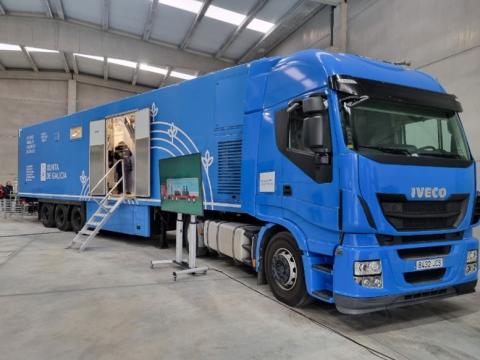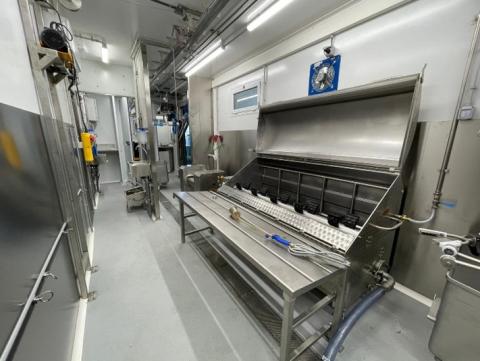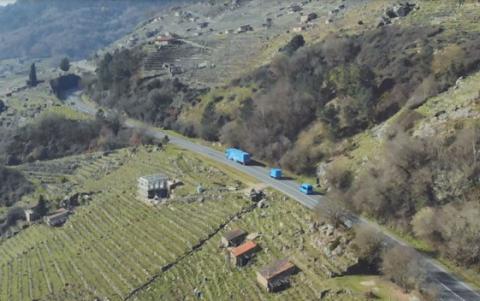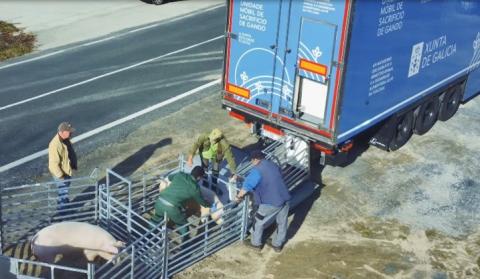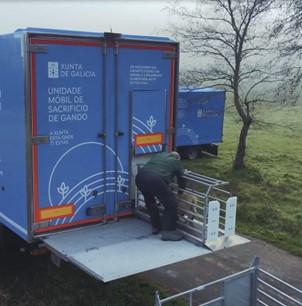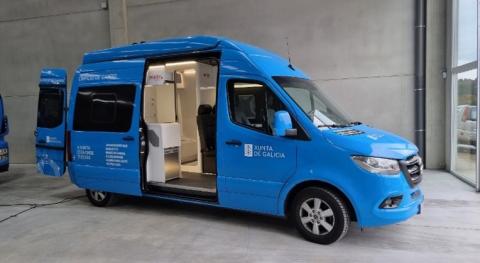Mobile slaughter in Galicia for small animals

About this good practice
In Galicia there are many small farms that manage large areas of territory, playing a fundamental role in the fight against forest fires. These farms contribute to reducing land abandonment, since by using them as pasture for cattle, it helps to keep the forests clean and controlled, reducing the risk of fires.
For this reason, it is essential to ensure the survival of these farms, and for this it is necessary to increase their economic viability. One of the ways is the launch of this new mobile slaughter of the Xunta de Galicia.
This infrastructure will allow farms to avoid having to make long journeys to slaughterhouses. In addition, it will reduce the stress on the animals, improving their well-being, as well as the costs associated with transport and the hygienic conditions of the process will be increased.
The creation of this mobile slaughterhouse will in turn have a positive impact on the quality of the meat, by minimizing the negative effects of prolonged travel. In addition, it will contribute to a more sustainable management of the waste generated, thus ensuring a lower environmental impact.
On the other hand, this initiative supports the revitalization of the rural, as it strengthens small-scale agriculture. Because as previously mentioned, it plays a crucial role in fighting fires, by keeping the land clean. At the same time, it favors the reduction of emissions due to the animal transport and therefore the mitigation of climate change.
Expert opinion
Resources needed
Service has a team of three slaughterers, three drivers, veterinary and administrator.
Investment 851,281 € (design, construction, conditioning platform, cold chambers, materials). Annual operating cost 797,699 €.
Cost for users depends of animal and tasks: Sheep 10-20 €. Goats 15-25 €. Pigs 40-50 €
Evidence of success
From January to June 2024 a total of 467 animals were slaughtered (252 sheeps, 162 goats, 53 pigs).
In total, 87 services were carried out in 38 different municipalities, visiting 59 farms, which demonstrates the decentralized of the mobile slaughterhouse. Of these 38 municipalities, 4 have more than 10.000 inhabitants, 8 between 5.000-10.000 inhabitants, 26 less than 5.000, which shows that those who use the service the most are the municipalities with the smallest population, so rural areas.
Potential for learning or transfer
The project is easily transferable to other realities, although each region has its own regulations regarding food safety, animal welfare and waste management and the slaughterhouse would need to be adapted.
The necessary infrastructure and logistics may also vary from one region to another, such as the availability of roads, access to electricity or waste management.
The operation requires trained personnel. Transferring this technology also involves the transfer of knowledge and skills, which may require specific and ongoing training programs.
Climatic and geographical conditions may influence the design and operation of the mobile slaughterhouse. Adapting the equipment to operate efficiently in different conditions may require technical modifications.
The successful implementation of a mobile slaughterhouse in another country may depend on the support and acceptance of local authorities. This includes the willingness of local governments to support the project and facilitate permits
Further information
Start operation of mobile slaughterhouse
Images
